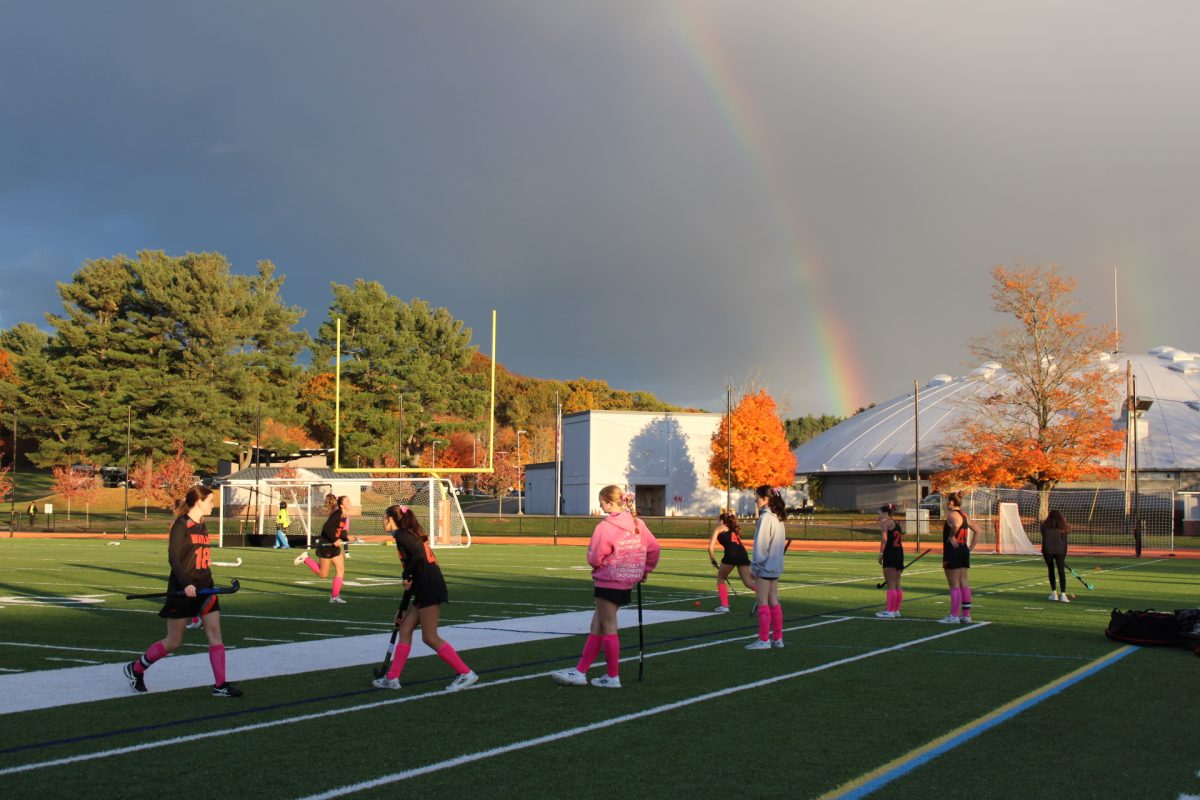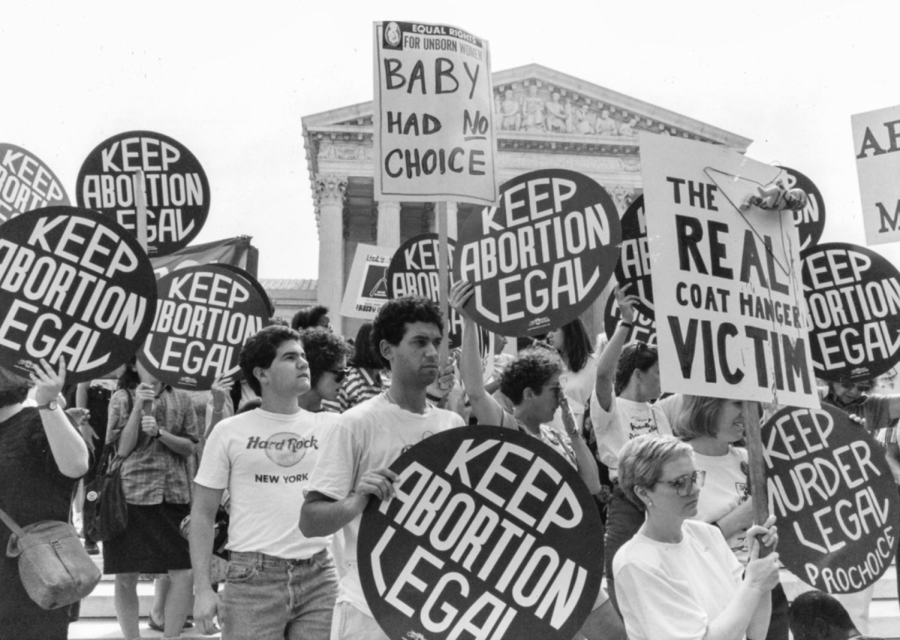Dobbs v. Jackson Women’s Health Organization: The past and future of U.S. abortion laws
Credit: Courtesy of Flickr user Lorie Shaull
WSPN’s Kally Proctor discusses past and upcoming Supreme Court decisions on abortion laws in Roe v. Wade and Dobbs v. Jackson Women’s Health Organization
January 8, 2022
The worst ultimatum a mother can be faced with is having to choose the fate of her unborn child. What she wants should be the most important choice, but now there’s a ticking time bomb placed on the freedom of choosing abortion. Deciding to have or to not have a child is a life-altering decision that will significantly impact a woman’s life, no matter what they choose.
Many of us have heard the recent debates on abortion. Most of us, regardless of political affiliation, gender and the ability to have children, will likely have some sort of opinion on the matter.
In the past, many states saw abortion as a generally “bad” thing. However, in the 1973 Supreme Court case Roe v. Wade, the Supreme Court decided that abortion was a woman’s legal right, and that she (to some extent) should be able to receive one. Now, abortion once again has become a hot social debate in which “pro-lifers” and “pro-choicers” maintain that their own side is the more morally correct side. This time, though, a different verdict might be reached. Now, the sides tend to be so evenly divided that even a small change can swing the majority.
The discussions and protests on the matter have become increasingly frequent as several legal proceedings have occurred surrounding the issue, including the passing of Texas’s new abortion law which limits abortions to within six weeks of the conception date. More recently, the U.S. Supreme Court heard the case Dobbs v. Jackson Women’s Health Organization.
Dobbs v. Jackson is a pending Supreme Court case dealing with a 2018 Mississippi state law that banned abortion operations after the first 15 weeks of pregnancy. Previously, based on the ruling in the Supreme Court case Roe v. Wade, states only had the ability to prohibit abortions during the third trimester of a pregnancy with some exceptions. This is after about 24 weeks.
At the Supreme Court hearing for Dobbs v. Jackson on Dec. 1, 2o21, the justices listened as the case was presented in order to determine and make a ruling on the constitutionality of the law. However, I think the main issue of this case really boils down to “where do we draw the line?”
At what point do we draw a hard line on limiting abortion time, if abortions will even stay legal at all? The Mississippi law which serves as the focus for this case isn’t even the worst of it, with the Texas Heartbeat Act limiting abortions to the first six weeks after conception. It seems like the time in which a woman may receive an abortion is shrinking and shrinking, and it soon may disappear entirely.
Indeed, some suspect that the Dobbs v. Jackson Supreme Court case could result in Roe v. Wade being overturned, and that states would be allowed to return to making their own laws surrounding abortion. This would likely result in many states banning abortion entirely, as was the case with the wide majority of states before the ruling on Roe v. Wade.
In fact, there are numerous states which, if Roe were to be overturned, would likely institute restrictions that are currently unconstitutional under Roe, or in which pre-Roe bans could take effect. Several states even have trigger laws set in place that will automatically ban abortion if Roe is overturned.
This, I feel, is the wrong way to go. While I personally don’t think that 15 weeks is overly restrictive, as it is past the end of the first trimester and a couple weeks into the second, I feel that this trend towards a shorter window of time for abortions is worrying. If, indeed, Roe v. Wade was to be overturned, I doubt that Texas’ current six-week limit would be the worst of it.
I agree with the outcome of Roe v. Wade. I believe that abortion is a right that all women should have. All women should be allowed to receive abortions if they want, as well as a certain amount of time to think over what is undoubtably a heavy and difficult decision. But besides the concerning evaporation of abortion times (and thus the amount of time for women to make that decision), there are several other issues with the shortening abortion times. One of these issues is the fact that it restricts the amount of women who will be able to get an abortion.
As mentioned above, the Texas Heartbeat Act shortens the time in which a woman may get an abortion to six weeks, but many do not even realize that they’re pregnant until the fourth or fifth week. This leaves them only one week to make the difficult decision. Furthermore, some do not even realize that they’re pregnant until a month or a couple months into the pregnancy.
The shortening of the amount of time in which a woman may receive an abortion, especially to a date so soon after conception, could block many women who want one from getting one simply because they did not realize they were pregnant.
In addition to this, further restrictions on abortions could even be dangerous, as a lack of access to safe abortion options could drive those who are pregnant to drastic measures. In the pre-Roe era, some would go to desperate lengths to terminate their own pregnancies, including consuming Lysol and household poisons to instigate abortion, or inserting objects from knitting needles to wire coat hangers into their cervixes.
I, for one, do not want to see a return to that dark time before legalized abortions where many women died from complications regarding abortion and pregnancy. I do not want women to have to resort to unsafe methods to get an abortion. What I do want is to ensure that we do not have to return to a world where the only options for people seeking abortion care are silence, stigma, shame and unsafe conditions.




























